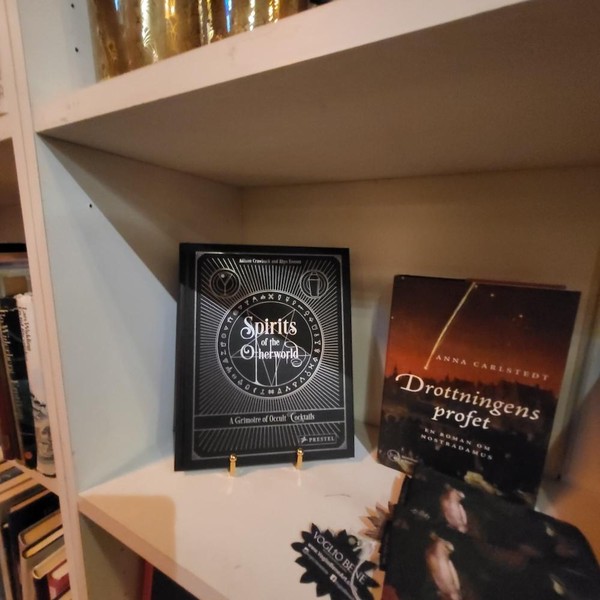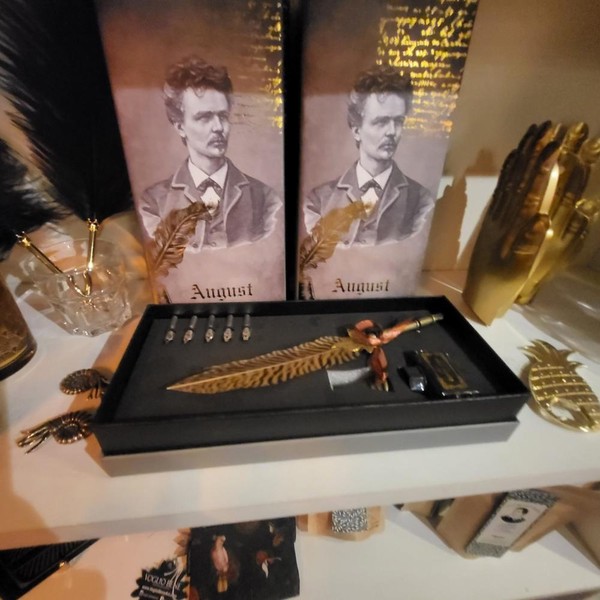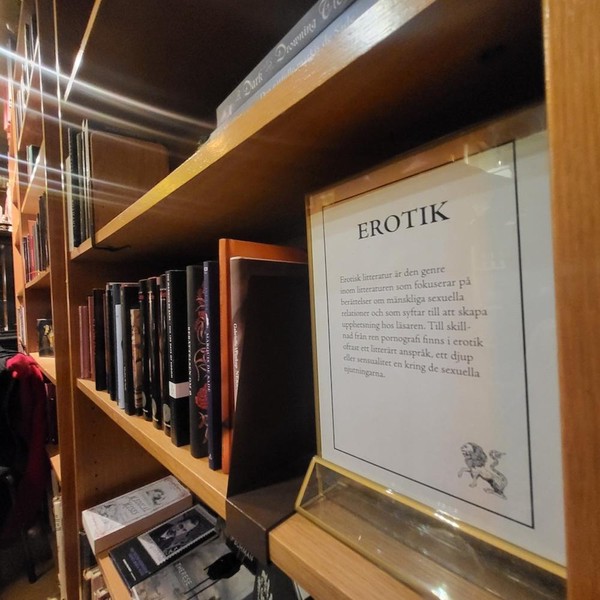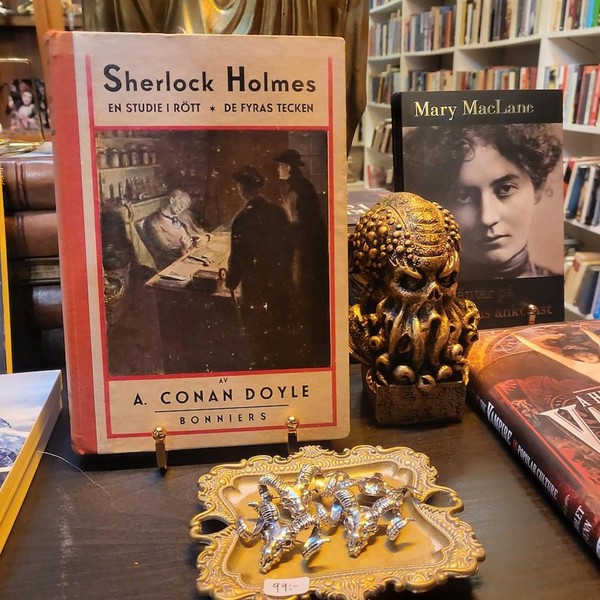This evening I went to another presentation at Chimära Bokhandel & Butik. The topic this time was Arthur Conan Doyle’s story The Captain of the Polestar and Polar Gothic literature.
The presentation was by Aleksander Heggelund, PhD candidate in literary studies. He did an amazing job introducing us to Arthur Conan Doyle’s life, work, and Polar Gothic as a genre.

My rough notes from the talk are below.
Arthur Conan Doyle’s Arctic expedition
Arthur Conan Doyle is best-known for writing Sherlock Holmes.
However, he also produced a lot of Polar Gothic literature. He even went on an expedition to Greenland on a whaling ship called Hope. In those times Polar expeditions were undertaken by people wanting to count themselves among the greatest adventurers. The Arctic was considered a mysterious, haunted place where a man’s grit and sanity were truly tested. Doyle, going as a ship surgeon, saw the trip as a ‘masculinity performance’ undertaken in the age of the heroic explorer. To him, his trip on Hope was a way of getting to this ‘region of romance’ that the Arctic was known to be - standing at the edge of the unknown.
Accounts written by Arctic explorers were akin to celebrity biographies of our time - undertaking such an expedition would provide fame, opportunity, and attention.
Conan Doyle’s grappling between science and spirituality
Arthur Conan Doyle originally studied medicine and considered himself to be a man of rationality and science. Yet, at the same time, he was a spiritualist and occultist fascinated with the paranormal. Straddling these two worlds and trying to reconcile them was a theme of The Captain of the Polestar and Polar Gothic literature in general.
The Captain of the Polestar reads as an almost autobiographical account to a reader who would not already know it’s fictional. It is a story written in first person about… a ship surgeon on an Arctic expedition to Greenland. As the crew encounter mounting unexplainable events and apparitions, the narrator attempts to explain them away as best he can, as a man of science, yet doubt creeps in as disturbing occurences mount.
Polar Gothic - man vs [super]nature
The North and South poles symbolize not just harsh conditions, but a lack of extensive human establishment. Polar Gothic stories often featured rational men slowly losing their rationality when faced with unexplainable events amid the ice. The genre also plays with human relations in an anti-human environment.
Sherlock Holmes - a pivot from Polar Gothic
Unlike his earlier works and The Captain of the Polestar, Sherlock Holmes was very much a character rooted in rationality and science. There was nothing supernatural about his detective work. Perhaps the closest to such a story that Conan Doyle came with Holmes was The Hound of Baskervilles, which had paranormal appearances that turned out out to have rational explanations.
Questions
I had asked when Arthur Conan Doyle’s interest in the paranormal began. Was it after his journey on the Hope? Did he think something happened there, and is The Captain of the Polestar, which seems to feature a self-insert character in similar circumstances, meant as an account of something he thought he really encountered? It isn’t clear. Conan Doyle did write much of his gothic literature after this trip, so it is possible it sparked something in him. But interest in the occult was also popular among transgressive young people at the time, so he likely already had an interest in it.
I also asked about Polar Gothic in modern media. Series like the last True Detective season sort of straddle the line without quite going into Polar Gothic (similar to The Hound of Baskervilles). Hinting at something maybe supernatural that ends up being perfectly rational.
When asked about the popularity of modern Polar Gothic today, Heggelund said that Polar Gothic is very popular (maybe increasingly so), possibly as a way to comprehend various crises around us.
Conclusion
I loved the presentation and will definitely be reading The Captain of the Polestar now. Maybe we’ll even discuss it in one of my short story fikas. To be decided!
As an aside, I had to pick between three events to go to this evening, and it was difficult. Tomorrow I’m going to a live podcast recording called “Becoming human - The search for soul in turbulent times”.
As another aside, someone please convince me not to buy everything in this shop. Thank you.






